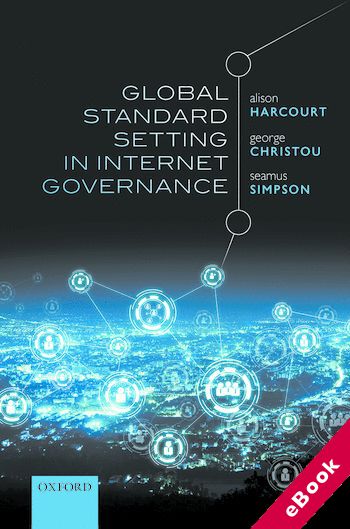
The device(s) you use to access the eBook content must be authorized with an Adobe ID before you download the product otherwise it will fail to register correctly.
For further information see https://www.wildy.com/ebook-formats
Once the order is confirmed an automated e-mail will be sent to you to allow you to download the eBook.
All eBooks are supplied firm sale and cannot be returned. If you believe there is a fault with your eBook then contact us on ebooks@wildy.com and we will help in resolving the issue. This does not affect your statutory rights.
The book addresses representation of the public interest in Internet standard developing organisations (SDOs). Much of the existing literature on Internet governance focuses on international organisations such as the United Nations (UN), the Internet Governance Forum (IGF) and the Internet Corporation for Assigned Names and Numbers (ICANN).
The literature covering standard developing organisations has to date focused on organisational aspects. This book breaks new ground with investigation of standard development within SDO fora. Case studies centre on standards relating to privacy and security, mobile communications, Intellectual Property Rights (IPR) and copyright.
The book lifts the lid on internet standard setting with detailed insight into a world which, although highly technical, very much affects the way in which citizens live and work on a daily basis. In doing this it adds significantly to the trajectory of research on Internet standards and SDOs that explore the relationship between politics and protocols. The analysis contributes to academic debates on democracy and the internet, global self-regulation and civil society, and international decision-making processes in unstructured environments. The book advances work on the Multiple Streams Framework (MS) by applying it to decision-making in non-state environments, namely SDOs which have long been dominated by private actors.
The book is aimed at academic audiences in political science, computer science communications and science and technology studies as well as representatives from civil society, the civil service, government, engineers and experts working within SDO fora. It will also be accessible to students at the postgraduate and undergraduate levels.